 Life & Style
Life & Style

When the COVID-19 pandemic hit HCM City since the end of April, witnessing the silent sacrifice and devotion of frontline healthcare staff, Trần Thị Thanh Thương came up with her own way to honour and celebrate those 'soldiers in white blouses'.
Thúy Hằng
HCM CITY — When the COVID-19 pandemic hit HCM City since the end of April, witnessing the silent sacrifice and devotion of frontline healthcare staff, Trần Thị Thanh Thương came up with her own way to honour and celebrate those 'soldiers in white blouses'.
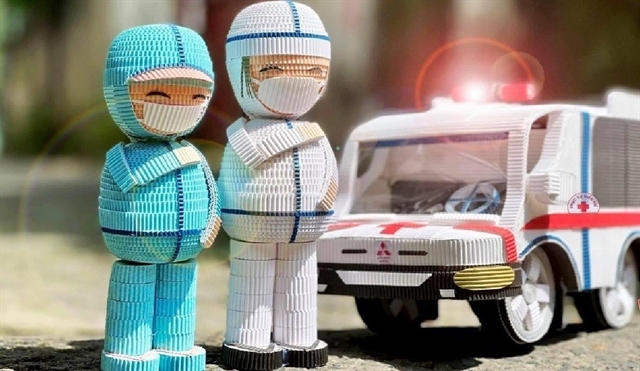
|
| Thương has created small hand-carved figurines of healthcare staff from kami paper. |
Thương created small figurines of healthcare workers and other frontline forces from kami paper – a kind of thin paper made specifically for Japanese origami.
Images of soldiers, despite the burning heat, delivering essentials to local residents, or volunteers soaked by the rain standing guard at COVID-19 checkpoints, inspired Thương to make the figurines.
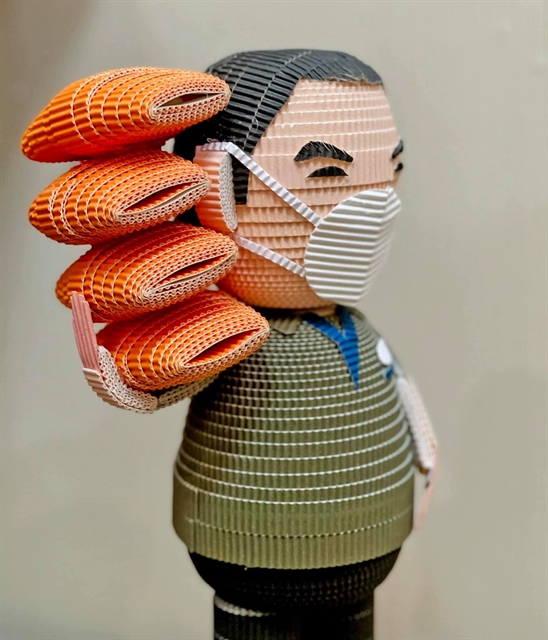
|
| Figurine of actor Quyền Linh who is dubbed ‘Artist of the Poor’. |
‘Artist of the Poor’, actor Quyền Linh, who carried heavy sacks of rice to distribute to poor people and labourers during the pandemic, also became a model for Thương’s paper dolls.
Dolls of other famous artists such as Việt Hương and Hoài Phương, who took part in charity activities during the coronavirus fight, were represented in paper.

|
| The figurines of frontline healthcare staff are keepsakes of a challenging yet unforgettable period of time. |
“Alongside expressing my admiration and gratitude towards the frontline forces, the figurines are keepsakes of a challenging yet unforgettable period of time,” she said.
The 39-year-old said that although she hasn’t joined the pandemic fight in person, by creating the kami paper dolls, she wants to cheer on those dedicated volunteers and healthcare workers.
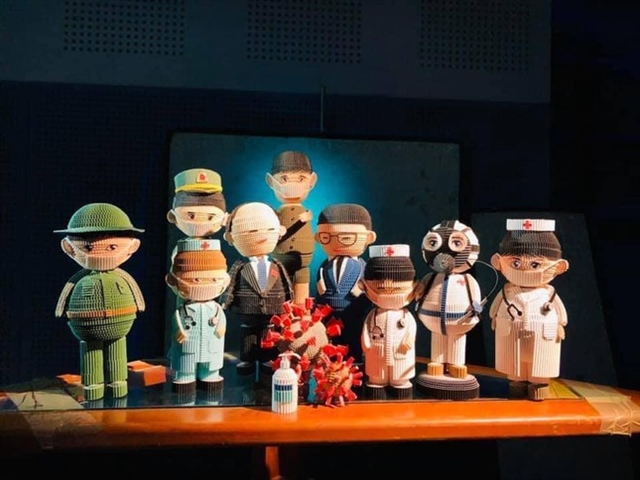
|
According to Thương, in 2017, she was given a kami paper doll, and became curious about how to make one herself.
She then learned about Japanese paper-folding art of origami by studying online.
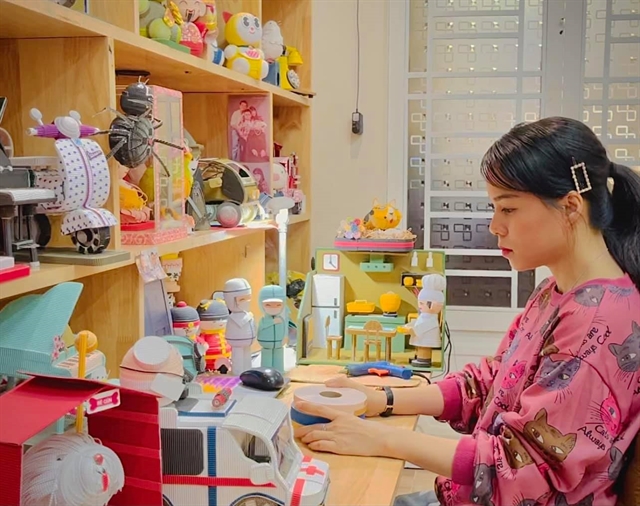
|
As the art is still relatively unknown in Việt Nam, she wasn't able to find the right paper and had to order it from abroad, mainly from Japan and Taiwan. It took several days for her to get the right equipment for her first kami creations.
In the beginning, Thương followed the basic steps online. Day by day, week by week, she finally found her own “tips” to perfect her paper creations.
“Firstly, I chose the model that I wanted to make. I had to study every detail then figure out how details should be folded,” said Thương. The paper artist is now considered a pioneer in kami paper folding art in Việt Nam.
The next step is to decide the colour, then roll, and fold the paper. The last step is to connect all the details with glue and give it some final touches.
“Unlike other kinds of folding papers, kami has wavy lines on its surface and smooth texture that holds creases very well and is very easy to create the models, so kami creations can be used as nice souvenir items,” she said.
Thương spends about 3-4 hours to produce a simple kami figure. For complicated ones, it takes her 2-3 days.
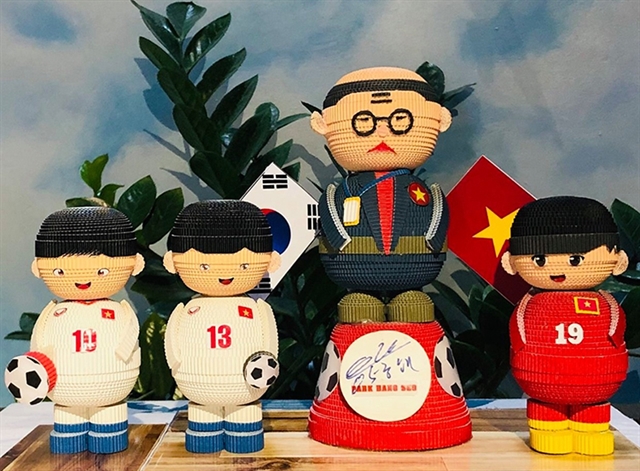
|
| Figurines of South Korean coach Park Hang-seo and some footballers of Việt Nam’s national football team. — Photos courtesy of Đồ Chơi Giấy Kami |
In 2018, she created the Facebook page Đồ Chơi Giấy Kami (Kami Paper Toys) where she has posted 300 hand-carved paper creations. She also decided to quit her white-collar job to devote herself to kami art.
In December 2018, when Việt Nam’s national football team played Malaysia in the AFF Cup Tournament, Thương designed a collection of the squad, including 24 footballers and South Korean coach Park Hang-seo.
A big fan of the national team, together with help from her husband, Thương didn’t sleep so she could complete the collection in 24 hours.
“It’s really a wonderful memory,” she said.
Thương has also conducted online workshops on kami paper folding. She hopes to promote the art form in Việt Nam, especially among young people. — VNS




